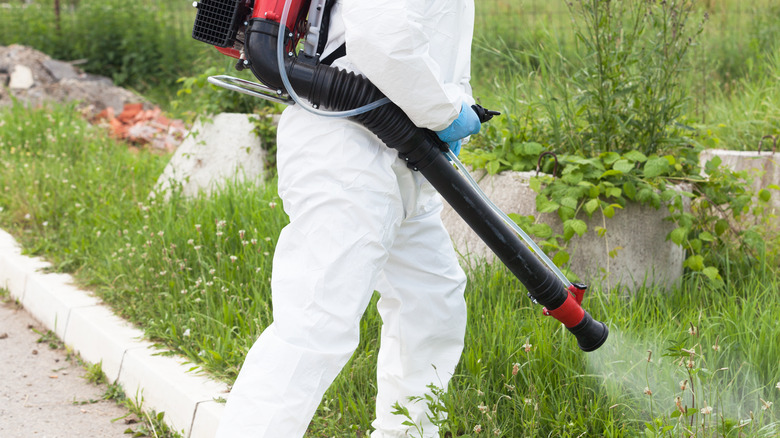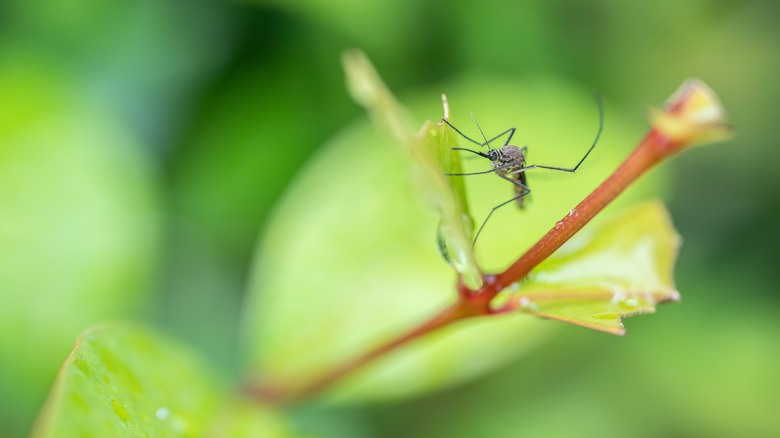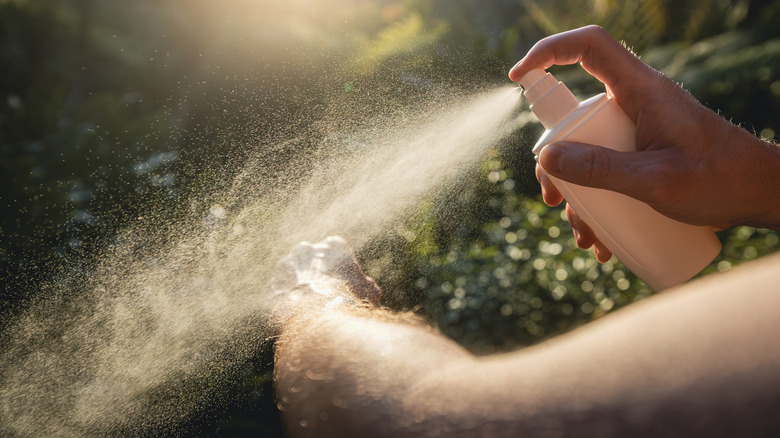Can Mosquito Lawn Treatments Really Keep Blood-Suckers Out Of Your Yard?
Folks with yards know how irritating pests can be — especially the bitey, pesky mosquito. That's why the age-old question of getting rid of mosquitos in your yard plagues many a homeowner. So, we turned to Matt Rogers, CEO and co-founder of Pestie, a pro-grade, DIY subscription pest control company to learn more about skeeter control. In an exclusive interview with House Digest, Rogers explained whether or not anti-mosquito lawn treatments will really keep those blood-suckers at bay and what other options there may be.
"Lawn mosquito spray treatments that coat a home's entire yard and landscaping with pesticides can be effective; however, in addition to controlling mosquitos, they could also harm beneficial insects like butterflies, bees, ladybugs, etc," he explained. This effect on other insects can make homeowners question the use of these broad-spectrum pest control methods and wonder about other options.
Rogers explained that a self-administered spray treatment can be effective too, depending on how it's applied and what it is. He also added that there are other non-pesticide steps you can take to stop mosquitos. For instance, you can keep up with your yard maintenance and not go out during the times of day when mosquitoes are most active. You could even try cultivating this easy-to-grow herb in your yard to keep mosquitos away, but plant it with care if you have pets.
Spot treat and keep up with yard work to deter mosquitoes from breeding
Mitigating mosquitos is not a one-size-fits-all scenario. Every yard has different elements that make them inviting (or not) to these backyard invaders. Which is why pest expert Matt Rogers suggests knowing exactly what you're dealing with to be more effective in prevention. "Different species of mosquitos prefer different environments in your yard," he said in an exclusive interview with House Digest. "Look to see where mosquitos tend to collect in your yard and spot-treat those areas."
He explained that, in addition to spot treating, you can also get rid of any standing water in your yard and remove debris to make it less habitable for mosquitos. Rogers noted that this is one of the best ways to support Integrated Pest Management (IPM) since mosquitos are so quick to reproduce. To keep the remaining skeeters from biting your legs while relaxing outdoors, you can also use a box fan to force them away from you, he added. Other natural methods you could try to include things like burning coffee grounds to keep mosquitos away from your home or lighting citronella candles.
"Mosquitos can have a very accelerated reproductive cycle," explains Rogers. "Some mosquitos can go from the egg to larva stage in just 48 hours." With such a quick reproductive period, continued mosquito maintenance methods are key, as well as the use of deterrents.
Natural methods might work, but they aren't all risk-free
For some, chemical pesticides are not the answer. The environmental impacts might make it an automatic no-go, so they turn to natural sprays, solutions, or plants with bug-repelling reputations. But do they work? Pest expert Matt Rogers told House Digest in an exclusive interview that they can work, but with some unknowns.
"Some plants have been shown to repel mosquitos, like lemongrass and lavender," he explained. "Planting these plants around patios or play equipment can help deter mosquitos. However, it's unclear how effective these treatments can be because environmental factors like wind and humidity can affect results." He also added that some natural methods can be dangerous for pets and have the potential for skin irritation in humans, too.
That's why, before turning to a natural solution, Rogers says, "It's important to do your research when it comes to using essential oils or plants to prevent mosquito bites." Once you've verified that the natural route is safe for your whole household (pets included), then implementation won't have as much cause for concern.


